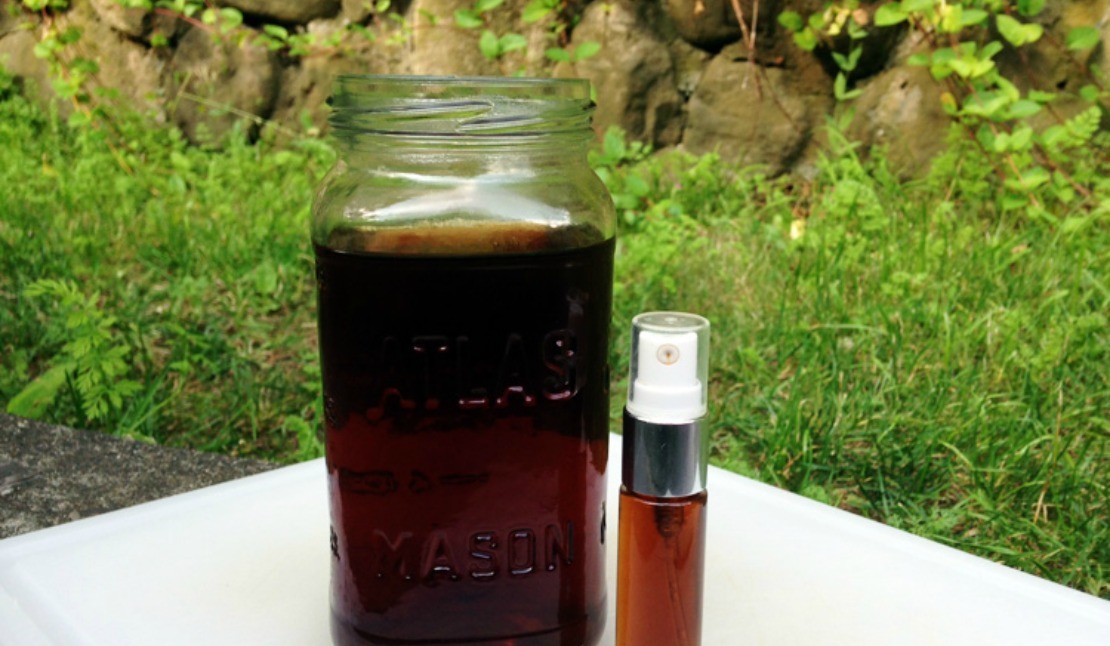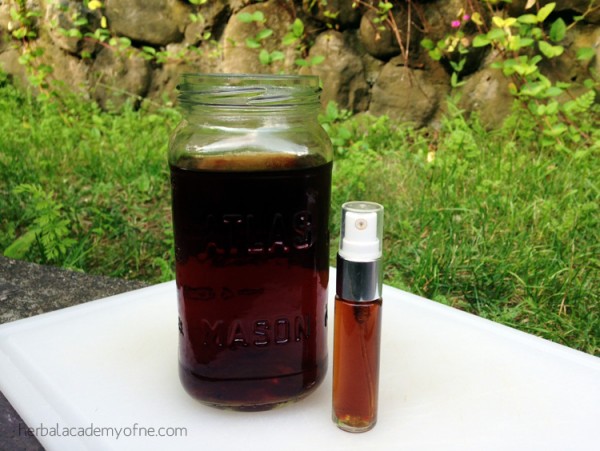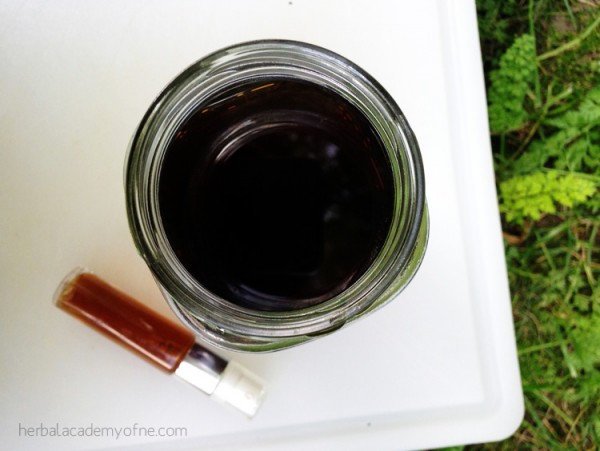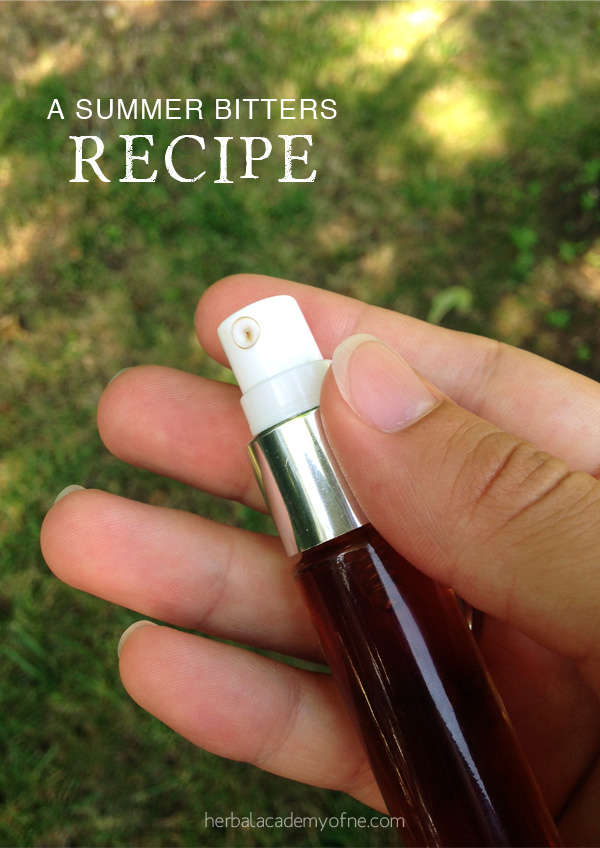
A Summer Bitters Recipe with Dandelion, Gentian, and Licorice Root
It goes without saying that most people prefer a sweet or salty flavor over a bitter one these days, but did you know that bitter foods are foundational parts of traditional diets due to their action on digestion? It’s true! Bitter plants were incorporated into the beginning of almost all meals as a way to facilitate healthy digestion. (Keep reading for a bitters recipe that you can make at home!)
Why were these types of foods consumed? Well I think Hippocrates summed it up well when he said, “All disease begins in the gut.” If you look at the majority of health problems we face these days, most times you can trace their roots back to some sort of nutrient deficiency or gut related problem. When bitter foods are eaten, the body responds in a way that stimulates digestion, slightly increases the appetite, and tones the entire digestive system. This digestive reflex helps you take in more nutrients, break them down properly, and improve absorption which feeds the body and helps maintain health. For more information on bitters, their history and health benefits, please see Bitter Integrations Part 1 and Bitter Integrations Part 2.
When To Use Bitters
Bitters can be used for many things, mostly pertaining to gut health, but they can also be used to balance hormones, neurotransmitters in the brain, and emotions thanks to their action on the enteric nervous system.
Today, I want to stick with ways that bitters can improve your digestion. Below you’ll see some of the most common reasons people would chose to start using bitters in their diets when it comes to digestion.
• stagnant digestion – food feels stuck
• constipation
• overall sluggishness
• malabsorption – nutrient deficiencies
• lack of appetite
Common Bitter Herbs
There are many herbs that have bitter flavors and actions. Some of these plants even vary in their bitterness and are ranked as strong bitters and mild bitters. These herbs can be used as is by eating their greens or chewing on their roots and they can also be made into herbal preparations such as tinctures, teas, and electuaries.

The following herbs are some of the more common bitters used.
• yarrow
• mugwort
Bitter Plant Compounds
Most plants that have a bitter flavor have these compounds found in them. They’re considered secondary plant metabolites which mean they serve no nutritional purpose for us or the plant, but they instead protect the plant against microbes, oxidative damage, and from being eaten by bugs. It’s also thought that by eating these bitter plants, the above protective measures are then transferred over to us as well.
• iridoids
• sesquiterpenes
• lactones
• glycosides
• alkaloids
Organs Affected
Now like I said before, bitter herbs are not only for improving your digestion. They can be used for other things as well. Below are the organs that are affected by bitter herbs.
• heart
• small intestines
• liver
• gallbladder
• pancreas
Bitter Energetics
Hopefully by now you’ve seen how great bitters are and how much they’re needed in most of our diets, but don’t run off to get some just yet. Bitters may not be the answer for some people depending upon their constitution and the energetics of these bitter herbs. Let’s take a look at the energetics of bitters below.
• stimulating
• drying
• cooling with some warming
• downward flowing energy
• grounding
Some herbalist recommend that people that are cold, dry or already in a stimulated state should not use bitters. Bitters are typically used for those that are hot (they’re very common in fever blends), moist, or in a stagnant state (like when dealing with digestive issues).

There are many premade bitter formulas on the market today that are great and very effective, but if you’re looking for one that is specifically suited to your constitutional type, you may want to venture into making your own with the summer bitters recipe, below.
Summer Bitters Recipe
This bitters recipe is designed to help stimulate digestion during the summer. Summer is typically a hot time of the year, depending upon where you live, and most people eat lighter, cooler foods during this time. This bitters recipe is balanced for summer.
Summer Bitters Recipe
2 parts dandelion root (cooling, drying)
1 part gentian root (cooling, drying)
1 part licorice root (warming, moistening) – increase to 2 parts for children
• Place herbs in a small glass jar, filling 1/3 of the jar full.
• Completely cover herbs with your choice of alcohol, filling jar 1 inch from the top.
• Cover with parchment paper and lid, and label jar with herbs and alcohol used, start date, and finish date.
• Allow to macerate for 4 weeks in a cool dark spot.
• Decant herbs and compost.
• Place tincture in a small glass spray bottle and use 2-3 sprays in your mouth before meals.
Do you use herbal bitters? If so, what benefits have you noticed from them?
Meagan Visser is a registered nurse turned home-schooling, stay-at-home mom to 4 small boys. She live in the Southern Appalachian Mountains of East Tennessee, and is currently a family herbalist that is passionate about using herbs for health and healing. She teaches natural-minded mamas how to take charge of their children’s health naturally on her blog GrowingUpHerbal.com and in her Letters To Natural Mamas emails.
REFERENCES
Hoffmann, David. (2003). Medical Herbalism: the Science and Practice of Herbal Medicine. Rochester, VT: Healing Arts Press
McDonald, Jim. (2010). “Blessed Bitters.” Herbcraft.org. Jim McDonald. Accessed from <www.herbcraft.org/bitters.pdf> on 6 July 2010
Charles-Davies, Danielle. (2011). “Bitters: The Revival of a Forgotten Flavor.” Westonaprice.org. Weston A. Price Foundation. Accessed July 2014 from http://www.westonaprice.org/health-topics/abcs-of-nutrition/bitters-the-revival-of-a-forgotten-flavor
Yarnell, Eric. (2003) Phytochemistry and Pharmacy for Practitioners of Botanical Medicine. Wenatchee, WA: Healing Mountain Publishing, Inc.
Green, James. (2007). The Male Herbal: The Definitive Health Care Book for Men & Boys. Berkeley, CA: Crossing









